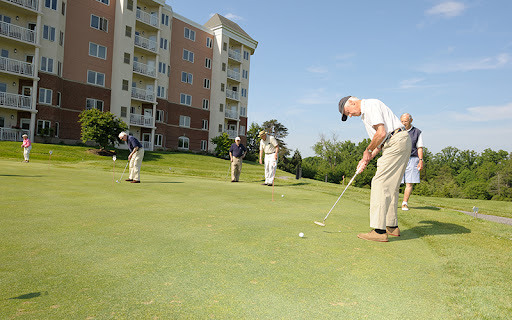5 Signs of Loneliness in Seniors (and What To Do Next)


Social interaction and having an expansive social circle is important to a senior’s health. Studies show that older adults who interact with others, besides close friends and family members, are likely to have the following attributes:
- Improved mood
- Less negative feelings
- More physical activity
While older adults with active social lives lead fulfilling and healthy lives, those with a lack of social connections can suffer from feelings of loneliness and isolation. If your loved one is living on their own and is feeling lonely, this can put them at increased risk of high blood pressure, heart disease, depression, and more.
Learning how to recognize the signs of loneliness in seniors can help you realize they need support.
1. Difficulty With Common Tasks
We complete common tasks, like checking the mail, doing the dishes, taking out the trash, and tidying up spaces, on a regular basis. When visiting your loved one, you may notice that they aren’t keeping up with these tasks.
A full mailbox or piles of mail on the table, dirty dishes, a full garbage can, and general messes can be a sign that your loved one is feeling isolated.
2. Changes in Demeanor
If your loved one is experiencing loneliness, it may change their mood and demeanor. They may have been attentive, kind, and easy to converse with before but are now more withdrawn, and when you do converse with them, conversations can turn hostile.
Unfortunately, these behaviors can prevent other people from wanting to be around them. It’s important to understand that isolation takes a large toll on someone’s mental health, so your loved one may have been struggling with these emotions for a long time.
3. Loss of Interest in Hobbies
Could your loved one identify a bird just by hearing its song and frequently go birdwatching – or did they always have a craft they were excited to finish and show you? But over time, your loved one doesn’t seem as invested in their hobbies as they used to be.
While it is normal for our loved ones to slow down as they age, having a complete lack of interest in the hobbies and activities that used to bring them joy can be a sign of loneliness.
You may also notice that instead of spending their time on their hobbies, they’re buying more and more things. Increased buying habits can also be a sign that your loved one is isolated.
4. Fatigue
Does your loved one seem to not have any energy, or are they feeling sick more often? Loneliness affects both physical and mental health, and it can take a toll on your loved one’s energy levels. They may not feel like they have the energy to do their favorite activities, like going on a daily walk, cooking a meal, or sitting and reading.
5. Lack of Appetite
Feeling lonely can also result in a lack of appetite. If your loved one is on their own most of the time, they may not feel like cooking for themselves or be too fatigued to go through the process of cooking. They may lose a sense of their schedule and eating at regular mealtimes. The feelings of ennui can also affect their hunger cues.
You may notice your parents picking at a meal instead of eating, their clothes fitting them more loosely, or they appear thinner from malnourishment.

How To Help a Lonely Parent or Loved One
While it’s upsetting to know that your loved one has been going through loneliness and social isolation, there are plenty of ways you can support your loved one.
Stay Connected
If your loved one is feeling isolated because family members live far away, you can help them stay connected with technology and social media. Planning FaceTime video calls and keeping in touch via text can increase your loved one’s daily communication and help them feel connected and that they have a strong support system.
You may also introduce your loved one to social media, where they can join new social networks based on their interests. They can talk to others about similar hobbies or find local groups where they can meet and talk in real life. This could be a local book club or birdwatching group.
Volunteer
Volunteering can provide your loved one with a sense of purpose and belonging, and your loved one can see the direct impact they’re having on their community. Many volunteer organizations are looking for older people to volunteer because of their life experience.
You can help your loved one look for local volunteer positions or join a wider network like AmeriCorps Seniors, an organization that connects senior volunteers with all kinds of volunteering opportunities.
Seek Professional Help
Your loved one may need professional guidance to process their feelings of loneliness and move past it. Speaking with a counselor, a support group for seniors, or seeking pastoral support may help them speak about their feelings to someone who can help them lift that weight off their shoulders.
Consider New Options
As your loved one finds ways to reduce their feelings of loneliness, they may start to reconsider their living situation. Perhaps their neighborhood isn’t walkable, or they don’t have many friends and family nearby. In this case, they may want to consider what senior living can offer them – a fulfilling lifestyle in a community of peers.
Senior living also provides communal dining rooms that make mealtimes an opportunity for social interaction. Your loved one can expand their social circle, and soon they’ll be making plans with friends to meet for mealtimes.
Join the Welcoming Community at Blakehurst
At Blakehurst, community is more than just what we are – it’s who we are. With more than 40 resident committees, there are dozens of ways to get involved and find new interests. Call us at 410-441-5996 to learn more about our inclusive and welcoming community.

